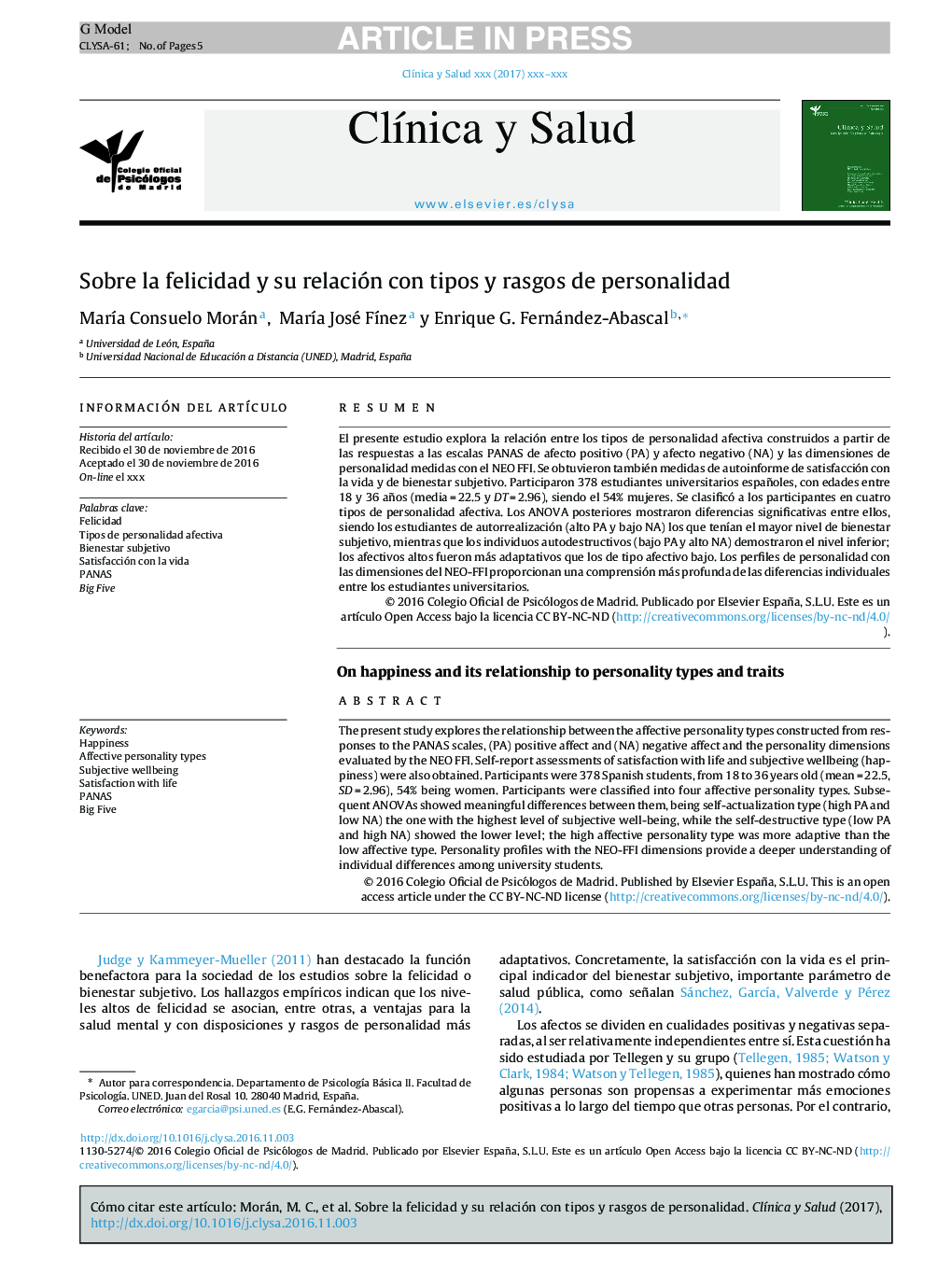| Article ID | Journal | Published Year | Pages | File Type |
|---|---|---|---|---|
| 7263246 | Clínica y Salud | 2017 | 5 Pages |
Abstract
The present study explores the relationship between the affective personality types constructed from responses to the PANAS scales, (PA) positive affect and (NA) negative affect and the personality dimensions evaluated by the NEO FFI. Self-report assessments of satisfaction with life and subjective wellbeing (happiness) were also obtained. Participants were 378 Spanish students, from 18 to 36 years old (mean = 22.5, SD = 2.96), 54% being women. Participants were classified into four affective personality types. Subsequent ANOVAs showed meaningful differences between them, being self-actualization type (high PA and low NA) the one with the highest level of subjective well-being, while the self-destructive type (low PA and high NA) showed the lower level; the high affective personality type was more adaptive than the low affective type. Personality profiles with the NEO-FFI dimensions provide a deeper understanding of individual differences among university students.
Keywords
Related Topics
Social Sciences and Humanities
Psychology
Clinical Psychology
Authors
MarÃa Consuelo Morán, MarÃa José FÃnez, Enrique G. Fernández-Abascal,
